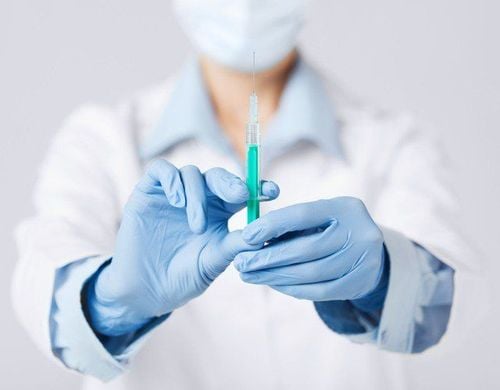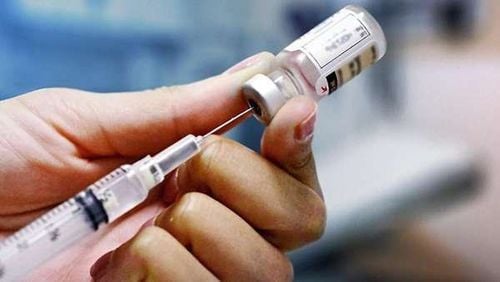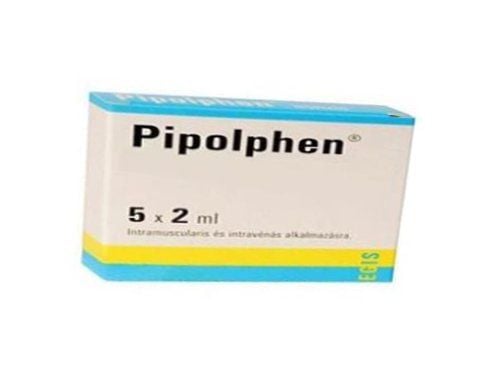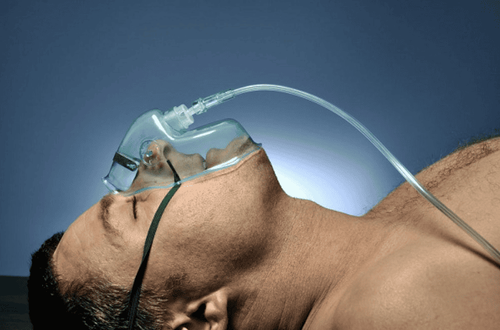This is an automatically translated article.
Pre-anesthesia examination and patient preparation is a routine job performed by an anesthesiologist before surgery, especially major surgery such as cardiovascular surgery.
1. Purpose of pre-anesthesia examination and patient preparation before cardiovascular surgery
Cardiovascular surgery is a large, high cost and potentially life-threatening intervention. To ensure the safety of cardiovascular surgery and minimize the risk of possible complications, pre-anesthesia examination and patient preparation before cardiovascular surgery play a very important role.
Pre-anesthesia examination and patient preparation before cardiovascular surgery are not only routine tasks that the anesthesiologist as well as surgery must perform. This is also a legally binding requirement. Pre-anesthesia examination and patient preparation help doctors assess the patient's condition before surgery, understand the medical history of the patient and family. On that basis, the doctor will plan the appropriate anesthesia and resuscitation, predict the difficulties of the anesthesia-anesthesia work, identify the possible surgical risks to have a timely prevention plan. time,... In addition, before major surgery such as cardiovascular surgery, patients' psychology is very stressful. Pre-anesthesia examination and patient preparation also help the doctor build a relationship with the patient, help the patient understand the steps of the procedure, reduce anxiety, trust and cooperate with the doctor.
SEE ALSO: Anesthesia analgesia in cardiovascular surgery
2. Steps of pre-anesthesia examination and preparation for cardiovascular surgery
2.1. Learn the history - the patient's medical history
Visit the patient to help the anesthesiologist know the medical history of the patient and family, record pre-operative symptoms for post-operative evaluation. Notable issues include:
Medical history: does the patient have cardiovascular disease (such as high blood pressure, coronary artery disease, a history of myocardial infarction, ...); respiratory diseases (bronchial asthma, tuberculosis, chronic heart disease, ...), digestive diseases (such as hepatitis B and C viruses), endocrine diseases (such as diabetes, goiter, adrenal tumors) ,... Allergic history: the patient is allergic due to local conditions such as seafood allergy, pollen, fur, difficulty breathing when the weather changes,... Allergic to drugs such as anesthetics, anesthetics, antibiotics,... Bad habits such as smoking, drugs, alcohol Drugs the patient is using: the patient needs to report all the drugs they are using to the doctor, especially the medicines for high blood pressure, drugs for diabetes, corticosteroids, diuretics,... Because some drugs need to be stopped for a while before surgery, some drugs need to be maintained before, during and after surgery. The decision to continue or stop the drug depends on factors such as: the severity of the disease, the effect of stopping the drug, the effect of the drug on the disease or the selected anesthetic, the half-life of the drug, ... Anesthesia history: if possible, the doctor should review the previous anesthesia record to know the anesthetic techniques used; used ventilation devices; ever had difficulty in ventilation, difficult intubation; complications have occurred,... Family history: the family has a history of malignant high fever, bronchial asthma, epilepsy, mental illness, blood diseases,...

Tìm hiểu tiền sử - bệnh sử người bệnh là bước khám tiền mê quan trọng
2.2. Clinical examination
Full body examination
Record the patient's height, weight, thin, fat, exhausted,... Comprehensive examination of cardiovascular, respiratory, digestive, endocrine, urinary, and genitourinary conditions; head, neck, teeth.
Assign patients to perform tests related to surgery including routine tests such as hematology, blood chemistry, urine biochemistry, coagulation test, chest X-ray, electrocardiogram , ... and additional tests depending on the nature of the surgery.
Pre-anesthesia examination
Pre-anesthesia examination, the doctor will pay attention to factors such as:
Vital signs Vein status: favorable for infusion or not Factors affecting the ability to ventilate and place endotracheal intubation includes: mouth-to-tongue gap, tooth condition (weak teeth that are easily broken, making it difficult to intubate, if there are dentures that need to be removed before anesthesia), chin, beard, supine flexion neck, chin gap,... The numbing area has scars, infections, deformities,... Patients with nerve damage cause phenomena such as distorted mouth, closed eyes, difficulty swallowing, paralysis...
2.3. Assess patient health rating
Based on the examination results and the performed paraclinical techniques, the doctor will evaluate the patient's health rating. The commonly used classification is the ASA classification of the American Anesthesiology Society, including the following levels:
ASA 1: patients in good health ASA 2: patients with diseases but not affecting their health and activities daily. ASA 3: patients with diseases affecting daily activities such as obstructive pulmonary disease, angina, diabetes,... ASA 4: patients with serious life-threatening diseases ASA 5: status very seriously ill patient, hope to live <24 hours with or without surgery ASA 6: brain death, waiting for organ removal MORE:
What is pre-anesthesia examination before open heart surgery? - P1 What is the pre-anesthesia examination before open heart surgery? - P2
3. Preparation plan before cardiovascular surgery
3.1. Prepare the patient
If the patient is anemic, depleted, and has electrolyte disturbances, the doctor may recommend a blood transfusion, protein, and electrolyte replacement for the patient. Give the patient prophylactic antibiotics depending on the nature of the surgery.
Instruct the patient to fast before surgery according to ASA as follows: filtered water must be drunk at least 2 hours before surgery, breast milk must be drunk at least 4 hours before surgery; snacks must be eaten at least 6 hours before surgery; Oily foods/meat must be eaten at least 8 hours before surgery,...
Stable treatment of chronic diseases such as hypertension, coronary heart disease, asthma, diabetes, blood clotting disorders... before surgery.

Việc tạo mối quan hệ giữa bác sĩ và bệnh nhân giai đoạn trước mổ là vô cùng quan trọng
3.2. Preparation of the surgical team
Selection of anesthesia method is based on factors such as age, patient's health status, nature and duration of surgery, surgical site, experience of anesthesiologist, and facility conditions of the patient. medical facilities,... Anesthesia options available include anesthesia, general anesthesia, or combined anesthesia. Prepare the necessary drugs and facilities to perform anesthesia. Plan to reduce postoperative pain for the patient. Assess the possible risks of surgery and anesthesia to have a timely prevention plan. During the pre-anaesthesia examination and pre-operative preparation of the patient for cardiovascular surgery, it is extremely important to create a relationship between the doctor and the patient in the pre-operative period. Doctors need to understand and care for their patients. Information for the patient fully and the disease and progress of surgery, advice on diet, time to stop eating, continue to use or stop the drug being treated,... Anesthesia, surgery can only be done when the patient or family signs the consent form.
Vinmec International General Hospital is one of the hospitals that strictly applies safe surgical anesthesia practice standards according to international guidelines. Vinmec has a team of experienced anesthesiologists and nurses, modern equipment such as: nerve detectors, ultrasound machines, Karl Storz's difficult airway control system, comprehensive anesthesia monitoring system GE's AoA (Adequate of Anesthesia) including monitoring of anesthesia, pain and muscle relaxation will deliver high quality and safety, helping patients to have adequate anesthesia, not awake, no residual muscle relaxants after surgery.
Vinmec Health System is also proud to be the first hospital in Vietnam to sign with the World Anesthesiology Association (WFSA) towards the goal of becoming the safest hospital for surgical anesthesia in Southeast Asia. Therefore, patients can be completely assured when performing anesthesia at Vinmec.
Please dial HOTLINE for more information or register for an appointment HERE. Download MyVinmec app to make appointments faster and to manage your bookings easily.













